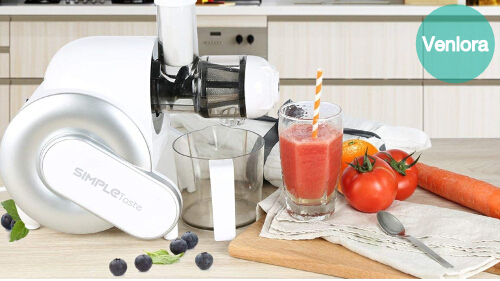Slow juicers and masticating juicers are basically the same thing; they are also known as cold presser juicers. These juicers operate at a very slow speed, and the single augers break up vegetable and fruit fibers by “chewing” them. However, there are other types of juicers which would be discussed in detail in this article. If you are looking to replace an old juicer or buy a new one, this guide will help you to choose the most appropriate juicer that best fit your lifestyle and needs.
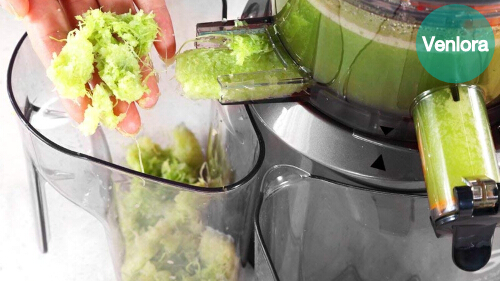
Types of Juicers
There are three different types of juicers for juicing vegetables and fruits; they range in price, so budget is the first thing to think about before making your purchase. They include masticating juicers (single auger slow speed juicers), centrifugal juicers (high-speed juicers), and triturating juicers (twin gear slow speed juicers)
Masticating Juicers
The masticating juicer is known for its high speed and twin jumbo gears and what those gears do is that they literally knead and grind the produce. If you think about it, it works the same way your teeth work when they are chewing food. The masticating juicers tend to be more efficient because they get more juice away from the pulp so at the end of the day you are using less produce. Also, masticating juicers are much better at juicing dark leafy greens. They work at a lower speed, and there is no spinning motion, so they tend to be less messy and quite a bit quieter.
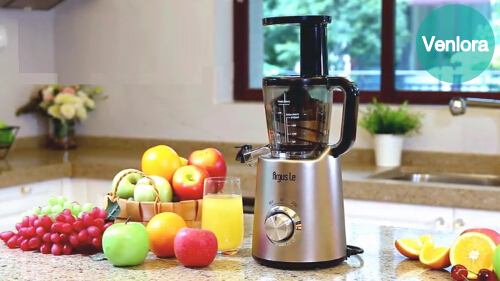
They have a low RPM which means the rate that it grinds up the food is a slow constant pressure. That is positive because when they go too fast, and they go too high, the machine gets hot and if the machine gets hot, it is going to kill some of the enzymes in your juice.
A masticating juicer is more versatile but also tends to be more expensive but not only does it make juice you can also use it to make things like baby food, pasta, and nut butter. These juicers tend to take more time to chop up all the juicing ingredients into small size pieces due to its slow rotation. Apart from this, they are harder to clean as they have more removable parts that need to be washed.
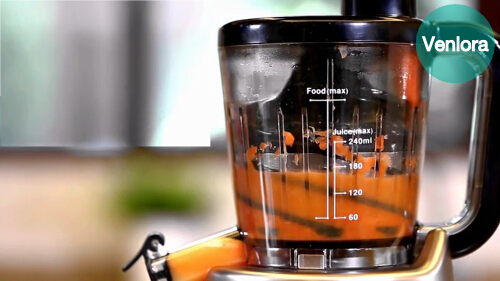
Centrifugal Juicer
Centrifugal juicers tend to be less expensive, but they are also a little bit less efficient and a little bit noisier. Basically what they do is they work, and they have a spinning motion, and that spinning motion grinds the produce to a pulp and forces the juice away from the pulp.
They are the most popular type of juicers used by an average person, they are fast, and it only takes seconds to grind through the produce and strain out the liquid. Centrifugal juicers allow you to throw in carrots, cucumbers, beets, or greens in whole; this is because they have a wider shoot that allows any piece of produce to be dropped in.
Centrifugal juicers tend to oxidize and expose more air flow into the juice; this can sometimes make duller juice and break the nutritional value. They are particularly good for those individuals in a hurry as you do not have to chop up your fruits and vegetables and you can still get a good amount of nutrition. Centrifugal juicers can also be used to juice leafy green vegetables but they are not as good as masticating or triturating juicers at breaking down plant fibers.
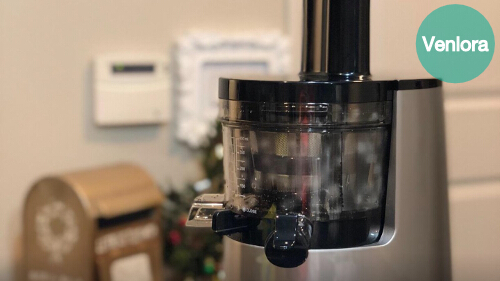
Triturating Juicer
This type of juicer is designed with two gears that lay side by side pressing and crushing the fruits and vegetable fibers. This helps to provide a higher quality of juice with more vitamins, enzymes, and minerals. The triturating juicers turn at a very slow rpm, and like masticating juicers, it takes a little longer to press veggies through.
Also, they have bio-ceramic and magnetic technology that slows down the oxidation process; this is good if you want to make and store your juice for up to three days with minimal loss of the vitamins and the nutrients. This type of juicer is also very versatile in that it is good at juicing almost anything including leafy greens and wheatgrass. Triturating juicers gives you the maximum amount of juice than you would get with masticating or centrifugal juicers.
A few other things you should consider before buying a juicer is how noisy is the juicer, how easy or difficult is it to clean up and take apart and put back together, and do you have a place to store it.
